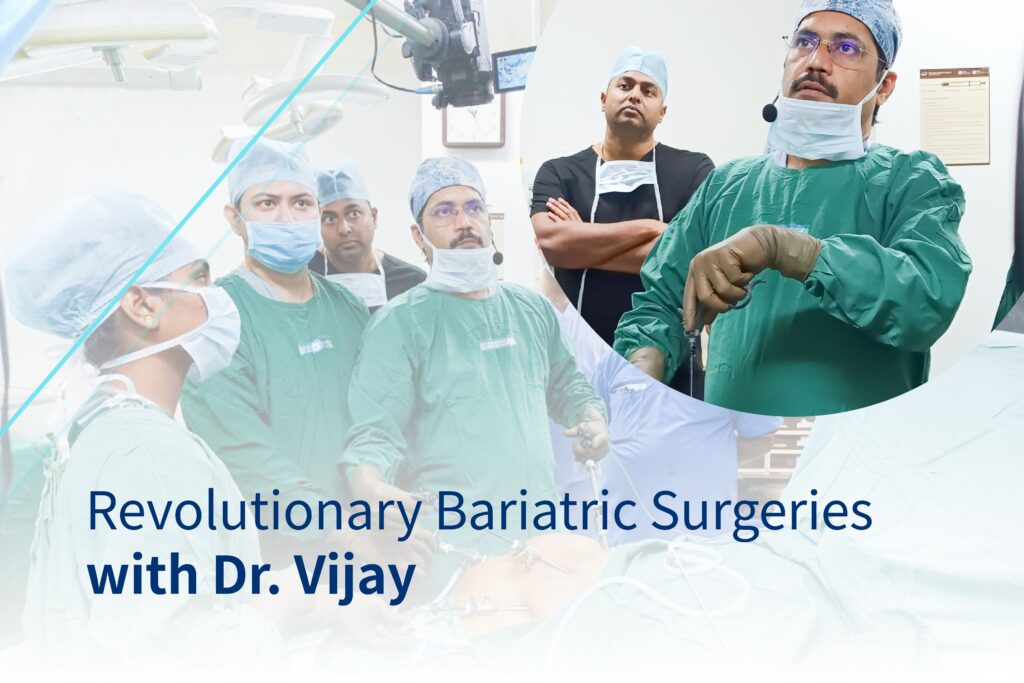Evolution Of Bariatric Surgery Techniques And Technology

Are you struggling with severe obesity and finding it difficult to achieve significant weight loss through lifestyle changes alone? Bariatric surgery could be a life-changing treatment option for you.
Over the years, bariatric surgery techniques and technology have evolved significantly, leading to improved outcomes and reduced risks for patients.
In this blog post, we will take a closer look at the evolution of bariatric surgery techniques and technology and their impact on patient outcomes. We will explore the most commonly used procedures, their benefits, and potential risks, providing you with a comprehensive understanding of this rapidly developing field. So, if you’re considering bariatric surgery or just interested in learning more, keep reading to discover the fascinating evolution of bariatric surgery techniques and technology.
Bariatric surgery techniques and technology have greatly improved patient outcomes, reducing risks and increasing the effectiveness of the procedures. The most commonly used techniques are the Roux-en-Y gastric bypass and the sleeve gastrectomy, both of which have shown significant weight loss and improvements in obesity-related comorbidities. Advancements in technology, such as laparoscopic surgery and robotic surgery, have also contributed to better outcomes with reduced pain, faster recovery times, and fewer complications.
Steps involved in Bariatric Surgery
Are you considering bariatric surgery as a way to manage your obesity-related health issues? If so, it’s important to understand the steps involved in this major surgery. From initial consultation to long-term follow-up, each step is crucial to ensure the best possible outcomes.
First, you’ll consult with a bariatric surgeon to determine if you’re a candidate for the surgery. Then, you’ll need to prepare for the procedure with additional medical tests and consultations with a dietitian. On the day of the surgery, you’ll be placed under general anesthesia and the chosen procedure will be performed.
After the surgery, you’ll need to follow a strict post-operative diet and exercise plan to ensure successful weight loss and reduce the risk of complications. Long-term follow-up is also essential to ensure ongoing weight loss and management of obesity-related health issues.
Understanding the steps involved in bariatric surgery can help you prepare for the procedure and make informed decisions about your health. So, if you’re considering bariatric surgery, keep these steps in mind to ensure the best possible outcomes

Common Risks, Benefits & Procedure of Bariatric Surgery
Bariatric surgery is a surgical procedure that alters the stomach and/or digestive system to help patients lose weight and manage obesity-related health issues. The most commonly used bariatric surgery procedures are the Roux-en-Y gastric bypass and the sleeve gastrectomy, both of which have proven to be effective in helping patients achieve significant weight loss.
The Roux-en-Y gastric bypass involves creating a small stomach pouch and rerouting the small intestine to this pouch, limiting the amount of food that can be eaten and the absorption of calories. This procedure not only helps with weight loss but also can lead to remission of type 2 diabetes and improvements in hypertension and other obesity-related comorbidities. The sleeve gastrectomy, on the other hand, involves removing a portion of the stomach and creating a new, smaller stomach, which also leads to significant weight loss.
While both procedures have shown to be effective, they also carry certain risks that patients should consider before undergoing the surgery. Potential complications of Roux-en-Y gastric bypass include bleeding, infection, bowel obstruction, and nutritional deficiencies. For the sleeve gastrectomy, potential complications include bleeding, infection, and stomach leaks.
It’s important for patients to carefully consider their options and discuss the benefits and potential risks of each procedure with their bariatric surgeon before making a decision. Other bariatric surgery techniques, such as the adjustable gastric band and the biliopancreatic diversion with duodenal switch, are available, but these procedures may carry additional risks. Bariatric surgery is a lifelong commitment that requires ongoing care and support from a team of healthcare professionals. If you’re considering bariatric surgery, consult with a bariatric surgeon to determine whether it’s a good option for you.
Also read: Is Bariatric Surgery Safe?
Have Any Question?
Are you looking for a Solution for your problem? You can call us or just drop your question here.
Stay Connected with
Dr. Vijaykumar C. Bada

Dr. Vijaykumar C. Bada is the best Gastroenterologist in Hyderabad city of Telangana.
- Flexible Appointments & Urgent Care
Dr. Vijaykumar C. Gastroenterologist
Design & Developed by Pointofviewer
Copyright © 2021. All rights reserved.
